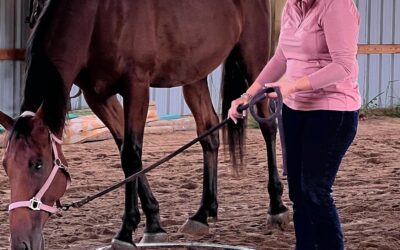Dr. Bill Howatt thinks so. I had an opportunity to hear Dr. Howatt’s presentation called ‘The Coping Crisis: Building Psychologically Safe Workplaces’ at the Tema Conter Conference on Mental Health held earlier this year. He is the Chief Researcher and Development Officer for Workforce Productivity at Morneau Shepell, with more than 25 years of experience in strategic HR, mental health and addictions and research. He is also a regular contributor to the Globe and Mail’s 9 to 5 Business Career Column and Leadership Lab, and has published many books and articles.
His latest book is called ‘The Coping Crisis: Discover Why Coping Skills are Required for a Healthy & Fulfilling Life.’ The premise of this book is that we don’t have a mental health crisis in Canada; we have a ‘coping skills crisis.’ “A core driver for this increase in mental illness is a lack of coping skills. When a person has gaps in their coping skills, they are ineffective at dealing with their life stressors,” he said.
In his remarks, Dr. Howatt noted that the number of employees reporting mental health and chronic disease continues to grow – a situation that is peaking the interest of senior leaders given the impact employee absenteeism and increasing insurance costs are having on business success. His comments were supported by these statistics: “the cumulative cost of providing mental health treatment, care and support services over the next 30 years in Canada is expected to grow to more than $2.5 trillion – suggesting that with one out of five Canadians – or 500,000- suffering from a mental health issue the related costs and risks for business are growing.” In Canada, he shared, “78% of short term disability claims and 67% of long-term claims are due to mental illness.”
Many people working in today’s environment will share that they struggle with being connected 24/7 to a demanding work environment that extends across time zones. We are expected to do more with less. We are running to balance the demands of work with family commitments. Middle managers feel the squeeze, juggling the demands of senior leaders with the expectations of front-line team members. Organizational change and office politics add another layer of stress that is often difficult to navigate. No one wants to admit their vulnerability and it takes courage to ask for help.
“So how did you learn coping skills?” Dr. Howatt asked the audience that day. “If we can provide people with opportunities to develop coping skills then we may have more people advocate for themselves when they need help,” he added.
“Coping skills are the tools a person has to manage how they interact with their world,” he explained. Among the ‘micro-coping skills’ Dr. Howatt believes can be learned are:
- Locus of Control – the ability to step back and think about options in a constructive way
- Self-Efficacy – your belief in your ability to succeed in specific situations and accomplish a task
- Cognitive Behaviour Insights – using psychotherapy to solve problems and change unhelpful thinking and behaviour
- Emotional Intelligence – the ability to recognize your own, and other people’s emotions and use emotional information to guide thinking & behaviour
- Resiliency – ability to recover from life’s adverse events
- Grit – having the positive passion and motivation to achieve a goal
- Decision-making and problem-solving abilities
- A-B-C Theory Insight – Activating event (and your immediate interpretations of it); Beliefs about the event (rational or irrational); Consequences – how you feel, what you do and other thoughts
If you are interested in learning more about Dr. Howatt’s work in coping skills, he offers an on—line course called Pathway to Coping Skills at the University of New Brunswick. For more info, go to http://www.unb.ca/cel/online/courses-programs/coping-skills.html
I think Dr. Howatt is right. We are in a coping crisis. I also believe working with horses through equine assisted  learning can also teach us coping skills. Their sensitivity to non-verbal communication helps us develop a greater awareness of our own emotions and the ‘stuff’ we bring to the barn. They don’t have an agenda, are genuine in their expression, and live authentically in the moment. They’ve taught me to be fully present, aware of my intent, and helped me develop emotional intelligence through mindfulness and leadership. It’s the kind of ‘therapy’ that’s worked best for me and it’s given me the skills I need to cope. I am grateful to the herd at The Mane Intent for this unexpected gift.
learning can also teach us coping skills. Their sensitivity to non-verbal communication helps us develop a greater awareness of our own emotions and the ‘stuff’ we bring to the barn. They don’t have an agenda, are genuine in their expression, and live authentically in the moment. They’ve taught me to be fully present, aware of my intent, and helped me develop emotional intelligence through mindfulness and leadership. It’s the kind of ‘therapy’ that’s worked best for me and it’s given me the skills I need to cope. I am grateful to the herd at The Mane Intent for this unexpected gift.
Are you in a coping crisis? Is your team struggling to keep up? Want to explore what’s possible? Book a private or group session at The Mane Intent and work with our gentle herd to find out how you can cope and explore what’s possible.





